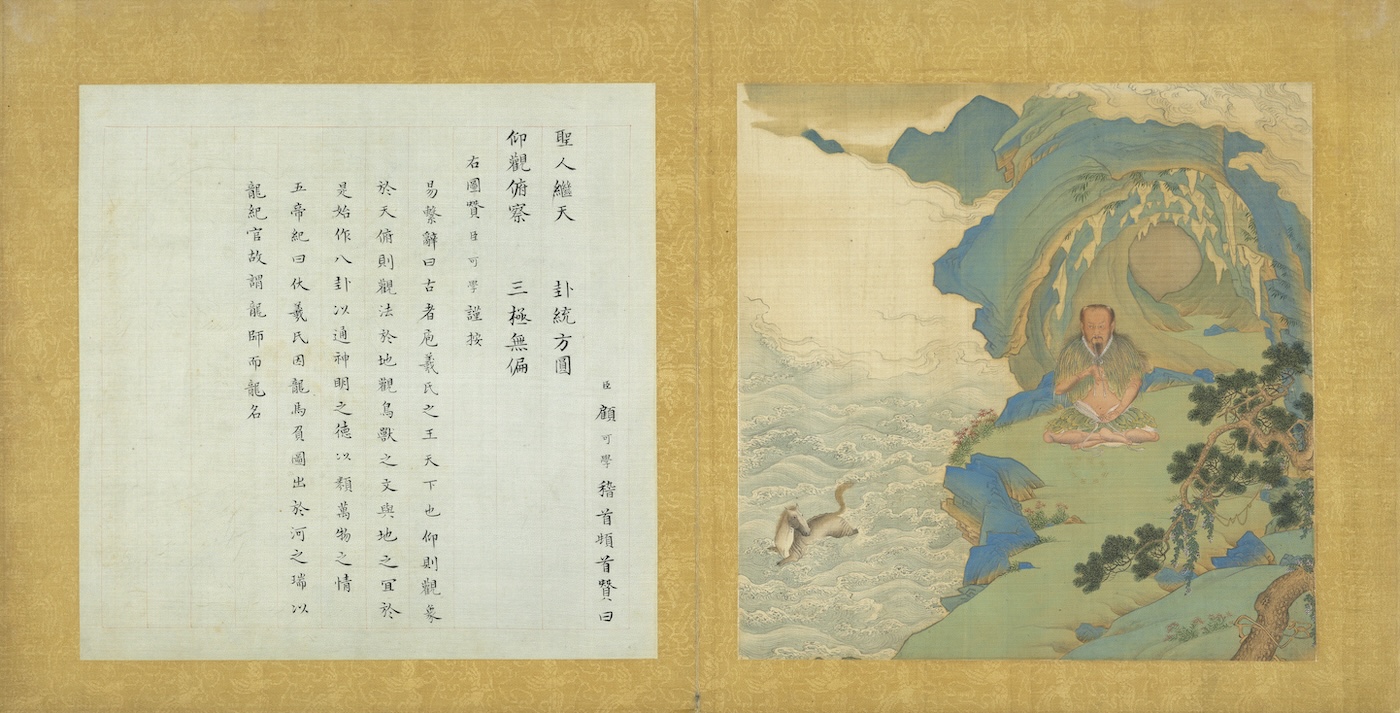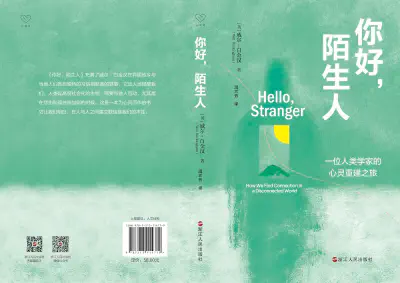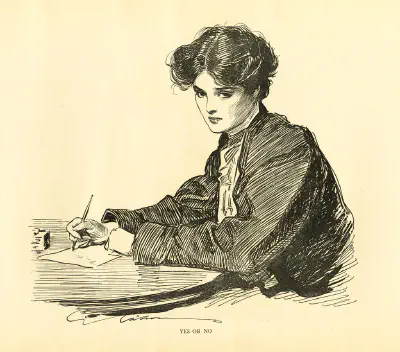A couple of weeks back, I said I would post the text of my talk at the Third Annual World Yijing Summit Forum in Wuxi, as it might be interesting or at least entertaining for visitors to this site. Since then, I’ve been in touch with my translator Junxia Pu 浦军霞, who has very generously given me permission to simultaneously publish her Chinese translation of the text. So here it is, in its entirety, with parallel text in Chinese. I hope you enjoy it.
The Zhouyi (Yijing, I Ching, or Book of Changes) is undoubtedly one of the central texts of Chinese culture. Its influence can be felt everywhere, from philosophy to politics, from art to architecture, and from literature to daily life. And yet the Zhouyi remains an enigma. Of course, we know a lot about the text. We know about its origins in ancient traditions of divination. We know how this divinatory text was later subjected to increasingly sophisticated philosophical readings, and how it became a part of the fabric of Chinese thought. We know how thinkers throughout Chinese history have responded to the text, often in creative and surprising ways. We know a good deal about its influence on political, social, ethical, and artistic life down the ages. We also know about how the Zhouyi has gone from being a classic Chinese thought, philosophy and literature, to being a truly global text. But for all this, the Zhouyi is a very strange book. Some claim it is a book of wisdom; but if it is a book of wisdom, it is hard to see precisely what wisdom it imparts. Others insist that it is a philosophical text; and yet, it is hard to see what, if any, arguments it is trying to put forward. Still others say it is a work of literature; but it lacks much of what one might expect in literature (thematic coherence, identifiable characters, plot). And whilst we know a lot about the Zhouyi, it is still hard to say what it is about. Ultimately, it is not clear that it is about anything at all. And so here is the problem: how can this book that is about very little, that seems to say so very little, that is persuading us of nothing much, and that has nothing in the way of wisdom to impart, nevertheless have proved to be so very fruitful over the course of its long history?
《周易》,创造的灵感
毫无疑问《周易》是中国文化的中心内容之一。从哲学到政治,从艺术到建筑,从文学到日常生活,到处都受其影响,然而《周易》还始终是个迷。当然我们知道其很多内容,《周易》起源于古代的占卜传统。我们知道,这占卜的内容后来受到越来越复杂的哲学解读,以至后来成为中国思想构造的一部分。我们知道,中国历代思想家对内容的解读,日新月异。我们很清楚它对政治、社会、道德、和艺术生活的影响。我们也知道《周易》如何从经典的中国思想,哲学和文学, 成为真正的全球文化。尽管如此,《周易》是一本非常奇怪的书。有人说这是本智慧的书, 但是这么说,很难精准地论述其所传授的智慧。一些人坚持它是一本哲学书,但是很难提出什么论据,诚然,争论是为了推进。还有人说这是本文学书,但是缺少很多要素(主题线索、人物性格,场景)。虽然我们对《周易》了解很多,还是很难说它到底是什么。最终,一切还是不清楚。然而,这本书这么薄,说的也少,劝说我们的也不多,也无关智慧的传授,为何却是如此富有成果且历史悠久?
The answer I think, lies in what could be called the Zhouyi’s inventiveness, or perhaps more precisely in the inventiveness that the Zhouyi inspires in those who come to it. It is not that the Zhouyi is a book that tells us about the world. Instead it is a book that encourages those who approach it to find ever-new ways of inventing and reinventing the world.
我想答案是这样, 所谓《周易》的创造性,也许更精确是《周易》所激发出的那种创造性。《周易》并没有告诉我们世界是什么,而是鼓励那些接近它的人去找到发明和改造世界的新方法。
But before I get into this, I should say a little more about how I came across the Zhouyi. From the beginning, I approached the Zhouyi not as a scholar, but as a writer. I fell into it almost entirely by accident. One summer, fifteen years ago, I found myself in a conversation with a friend who was interested in non-Western philosophy. She was talking about the Zhouyi, which she used as a book of guidance. At the time, I was interested in the literary experiments of writers like Italo Calvino, and I had recently read Calvino’s essay ‘The Literature Machine’ (Calvino, 1997). In this essay, Calvino dreams of a machine – a kind of permutation engine – that can conjure up stories. As my friend spoke, it occurred to me that the Zhouyi might function as a literary-machine, as a means of invention, as a story-engine. I knew nothing about China, spoke no Chinese, and had very little understanding of the intellectual riches of the Chinese traditions; but after this conversation, I went to buy a copy of the Zhouyi in translation, My plan was this: to write sixty-four stories, each one based upon one of the gua 卦, or hexagrams, that make up the Zhouyi. I thought it would take a year or so. As it turned out, that accidental conversation launched me on a more than decade long Odyssey into the Zhouyi, and into Chinese language, literature and thought.
在开始之前,我介绍一下自己是怎么接触《周易》的。最初对《周易》的了解, 我是作为一名作家而不是学者。完全是碰巧。15年前的一个夏天,我和一位对非西方哲学感兴趣的朋友对话。她把《周易》当作指导书。那时,我对文学实验性作家伊塔洛.卡尔维诺感兴趣,我最近读了卡尔维诺的文章《文学机器》(卡尔维诺, 1997)。在这篇文章里,卡尔维诺梦到一台机器,一种排列引擎,可以想像出故事。如我朋友说的,《周易》可以作为文学机器,创造的方式,故事的引擎。我不了解中国,不会说中文,对中国丰富的传统文化知之甚少。这次会谈以后,我买了一些《周易》的翻译书,我的计划是:根据《周易》的每一卦或六线形图写64则故事,我想这需要一年左右时间。事实证明,那次偶尔的对话让我花了长达十多年的时间研究《周易》,以及中国语言、文学和思想。
I confess that from the very first, I was baffled by Zhouyi. I could not make sense of it. It seemed impenetrable. I could not work out what any of it meant, what any of it was about. So in my search for illumination, I started to learn Chinese. I accumulated multiple translations of the text. I studied the work of scholars. I plunged into the Zhouyi the way that a treasure-seeker might plunge into a deep cave, telling myself that somewhere down there I would stumble across great riches. And yet, every time, I came up empty-handed. I still couldn’t work out what Zhouyi was talking about.
As the years passed, the Zhouyi remained as impenetrable it had been at the start. But it did not leave me entirely empty-handed because as a result of my little literary experiment, the stories started to pile up. And in this way, a paradox slowly impressed itself upon me. On the one hand, the Zhouyi remained opaque, it continued to befuddle and confuse me. But on the other hand, despite my continuing befuddlement, it seemed to work for the purposes of invention. This was the paradox: the Zhouyi was both perplexing and remarkably good at giving rise to new thoughts and ideas.
我承认,从一开始,我就很难读懂《周易》。我弄不明白,这似乎是无法理解的。我不知道这是什么,其中又谈了什么。为了了解清楚,我开始学习中文。有很多翻译文本,我开始研究这些学者的著作。我陷入《周易》,像是从深洞里寻求财富一般,告诉自己,在哪里某个地方,我可以争得巨大的财富。然而每次,我都空手而归,我始终不能明白《周易》在谈论什么。
随着岁月的流逝,《周易》还是如开始一般难以琢磨。但是不是完全一无所获,由于我的文学经验,故事开始建立起来。就这样,《周易》的难解给我留下了深刻的印象。一方面,《周易》难解,始终让我迷惑。另一方面,尽管我连续地迷惑,仿佛是为了实现创造的目的,这就是矛盾之处:《周易》令人困惑,但又启发新的思维和想法。
*
As time went on, I began to wonder if this was not a paradox at all. Perhaps the inventiveness to which the Zhouyi gave rise lay precisely in its refusal to say anything much at all. There is philosophical precedent for this idea. The Zhuzi yulei (朱子語類), or Classified Dialogues of Master Zhu, a collection of oral teachings from the twelfth century philosopher, Zhuxi 朱熹 (1130–1200), reads as follows:
若易,只則是箇空底物事,未有是事,預先說是理,故包括得盡許多道理,看人做甚事,皆撞著他。
The Zhouyi is an empty object. Before there is a certain event, it states in advance a certain principle. Therefore it can cover many principles in their entirety. When one uses it in observing people and conducting affairs, he will find it fitting for everything.
随着时间的流逝,我开始怀疑这是否是一个悖论。也许《周易》的创造性不需要说太多。这个想法有哲学上的先例。朱子语录,或者分类对话,口述收集,20世纪哲学家,朱熹(1130-1200),摘录如下:
若易,只则是个空底物事,未有是事,預先說是理,故包括尽許多道理,看人做甚事,皆撞著他。
The Zhouyi is an empty object. What does this mean? It might help, perhaps, to nuance this term a little. The translation of the passage above is taken from Ming Dong Gu (Gu, 2005, 101), and the phrase Gu translates as ‘empty object’ is kongdi wushi 空底物事. But kongdi 空底 isn’t quite ‘empty’: kong suggests a space (etymologically it derives from the character xue 穴 meaning ‘cave’) whilst di 底 suggests the ground, base or bottom of something, so kongdi means something closer to ‘empty-bottomed’ or ‘empty to the very utmost’. Meanwhile 物事 wushi isn’t quite ‘object’ or ‘thing’, but is instead something more like ‘matter’ or ‘affair’. So instead of ‘empty object’, I’d rather read this as ‘the Zhouyi is an empty-bottomed affair’ or ‘the Zhouyi is an affair that is empty to the very utmost.’
《周易》是个空的物体。这是什么意思?这也许有助我们细微区别这个术语。这段话的翻译摘自顾明东,顾翻译“empty object”为”空底物事“,但是也不完全是空,“空”是一个空间(语源上演变始于“穴”,洞的意思),“底”是地面,事物的基础或底端,“空底”是指空的底部或“空的最大”。“物事”也不完全是“对象”或“东西”,而更是像“物质”或“事件”。相比“空的物体”,我更愿意说《周易》是空无一物的事情。
The cave has no bottom, in other words. However much you poke around in it, there is no buried treasure to be unearthed because you are not going to get to the end of it. If you look for meaning or wisdom in the text, you won’t find them. The search for meaning and wisdom in the text is going to fail, but not because the Zhouyi is, as some claim, too profound. It is going to fail because if you are looking for this kind of meaning or wisdom, you are looking for the wrong thing. Or you are looking for the right thing in the wrong place. The Zhouyi is best approached not a commentary upon the world, nor as a repository of insights, nor as a book of wisdom. Instead, it is more fruitful to approach it as a tool.
换句话说,这个洞穴没有底部。无论你怎样凿,都没有发现埋葬的宝藏,因为你凿不到底。如果你想寻找意义和智慧,你找不到。找寻不到意义和智慧,不是因为《周易》就像某些人说的那样,太深奥了。而是你找的是错误的东西,或者你在错误的地方找寻正确的事物。《周易》不是对世界的评论,不是洞察的宝库, 也不是一本智慧的书。相反,将它作为一种工具会更有成效。
Seeing the Zhouyi as a tool frees us from asking what it means, and aligns us more closely with the question of how it has been used throughout history. Until you actually use the Zhouyi – like a hammer, or a saw, or a food blender – it means very little and does very little. This was already recognised as early as the Great Commentary, the Dazhuan 大傳: ‘the Zhouyi is without thought; it is without action, it is static and doesn’t move’ (易无思也,无為也,寂然不動). Just like a food-blender or a hammer, the Zhouyi has no thought and no action. You don’t want a tool to have a mind of its own, or its own purposes. A food-blender or a hammer with thought and action would be a dystopian artificial intelligence nightmare. You want your tools to be inert, until you can put them to work in a way that suits you.
把《周易》看作一个工具,不去问其意思,让我们更接近于历史上如何使用它的问题。在你真正用到《周易》之前,它像一把锤子,或锯子,或者食物搅拌器,意义非常小,做得也非常少。早先《周易》就被《大传》认可,《周易》没有思想;没有行动,是寂然不动的。就像食品搅拌器或锤子一样,《周易》没有思想和行动。你不希望一个工具有它自己的智慧,以及目的。食品搅拌器或锤子有思想和行动会是反乌托邦式的人工智能噩梦。你希望你的工具是惰性的,知道你能让它们以适合你的方式工作。
The genius of the Zhouyi does not lie in it being a repository of hidden wisdom. Instead it lies in its impressive design as a tool for invention. The Zhouyi is a way of investigating the world, a means of generating insights and putting what wisdom we may have accumulated to work. To the extent that meaning and wisdom are at stake here at all, these meanings and wisdom are not to be found in the text, but instead in the unfathomable complexities of the world, and in the fine judgements of the person who comes to the text – in their unique, unrepeatable situation.
《周易》的优势不在于它隐藏智慧的宝藏。而在于它作为创造的工具,令人印象深刻。 《周易》是一种探索世界的方式,是一种产生真知灼见的方法,并把我们积累起来的智慧付诸实践。这里有意义和智慧的延伸,却不在内容上,不在世界的深奥复杂,犹如对人最好的判断是来自内容,他们独特,不可重复。
My own method of using the Zhouyi was idiosyncratic. But then the Zhouyi, having no agenda of its own, favours idiosyncrasy. In writing sixty-four stories, one for each hexagram, I did not have a single method. The stories came about in different ways. Some of them emerged from a close reading of the text itself, some of came from reading the commentarial traditions, some came from the traditional divinatory approach of manipulating milfoil stalks, others were more obliquely connected to the text, and some stories I stumbled across out in the world, or when rambling through the contents of my own head in dreams and imaginings, only to realise later how they related back to this or that hexagram.
我自己使用《周易》的方法比较特殊。然而周易没有自己的行程,特立独行。在写六十四则故事时,一个故事代表一个六线形图,我没有用单一的方式。故事是以不同的形式出现的。一些来自对内容的仔细阅读,一些来自传统的评注,一些来自传统占卜的方法,其余和内容的关系有着间接的联系, 一些是故事世界上我偶尔发现的,或者当漫步时通过自己梦想或想象的内容,后来意识到他们是如何关联这个或那个六线形图。
The book was finally published in 2015 as Sixty-Four Chance Pieces: A Book of Changes (Buckingham, 2015). It is not a work of scholarship. Instead it is an attempt to take the Zhouyi seriously as a tool for invention, and to put it to work in creating something new. The book that resulted from this is undeniably strange. I will probably never write a stranger one. It is a hybrid of fiction and non-fiction, neither a short story collection, not quite a novel, not quite a philosophy book, and not quite a travelogue, but something crosses between all of these things. But then, the Zhouyi is itself a strange book, so I should not have expected otherwise.
这本书最终于2015年出版,六十四则机会篇,一本关于变化的书(白金汉姆,2015)。这不是学者的著作。相反,它试图将《周易》看作是创造的工具,将其用于创造新的事物。不可否认,它来自于一本奇怪的书,我可能不会再写下一本。它是小说和非小说的混合体,不是短篇故事集,也不是一部小说,不是一本哲学书,也不是一篇游记,是介于所有这些东西之间的东西。但是,《周易》本身就是一本奇怪的书,我不应该有其他的期待。
So to end, I want to give a flavour of this strangeness by telling one of the stories from the book. The story I am going to tell comes from hexagram forty-nine of the text. The Chinese name of the hexagram is ge 革, or ‘revolution’ – as in the contemporary terms geming, political revolution, or wenge, the Cultural Revolution. Because it is a story about invention and inventiveness, it seems like a fitting story with which to end. I wrote the story in Tianshui, where I had gone to seek out the temple to Fu Xi 伏羲, the mythical law-giver and inventor of ancient China. Fu Xi is said to be the originator of the eight trigrams around which the Zhouyi is structured. According to the Han dynasty text, the Virtuous Discussions in the White Tiger Hall, or Baihu Tongyi 白虎通義. He transformed the world by joining together man and wife, regulating the five phases of change and establishing the laws of humanity. The Virtuous Discussions also claim that he invented the eight trigrams around which the Zhouyi is structured, as a tool to help people master the complexity of the world.
最后,我想讲一个书里的奇怪故事,这个故事是来自内容四十九六线形图。六线形图的中文名字是“革”,或是“革命”,当代革命、政治性变革,文化大革命。因为这是关于发明和创新,就好像是一个合适的故事结尾。我在天水写的故事,我出去找寻伏羲庙宇,古老中国的神话发明和创新者。据说伏羲是《周易》所构建的八卦的鼻祖。根据汉朝文本,白虎堂的人伦讨论,或者白虎通義。他通过男人和妻子的结合改变了世界,规范了变革的五个阶段,并建立了人类的法律。这种人伦讨论还声称,伏羲发明了《周易》所构建的八卦,作为一种帮助人们掌握世界复杂性的工具。
After arriving in Tianshui, I checked into a dingy hotel in the centre of town. Later that evening, I found myself drinking beer in a seedy bar with a French singer of chansons. When he was so drunk that he no longer cared, he tipped back his head and he sang. The following day, I woke late with a hangover, bought some fresh bread from a Uighur trader in the market, and headed out of town to the temple. Outside the temple, a small group of children dressed in kingfisher blue was practising martial arts. I watched for a while, and then went into the temple to pay my respects. Later that day, I returned to my hotel and sat down to write. The story came more or less naturally.
到达天水后,我入住市中心的一家昏暗的酒店。夜深时,我发现自己和一位法国歌手在一个破旧的酒巴喝着啤酒。当他喝得酩酊大醉时,完全不在乎了,仰起头唱着歌。第二天,我宿醉醒来有些晚了,在市场上买了些维族商人的新鲜面包,然后出城去了庙里。在寺庙外,一小群穿着蓝色金鱼服的孩子正在练习武术。我看了一会儿, 然后去寺庙瞻仰。后来,我回到酒店写作。 故事很自然就写出来了。
Hexagram 49
革 or Revolution 49卦 革 或革命
I dreamed that night. After a journey along roads fringed by tall maize and sorghum, after I climbed the steps of the old temple and made obeisance in the incense-fragrant hall occupied only by myself and a few sparrows, after I looked him in the eye, and he stared back at me from the shadowed wall, I dreamed of old Fu Xi. He was hairy, wild-eyed, a man of the soil, dressed in leaves and animal skins, his toes sturdy, his big hands capable, grasping at everything.
It was a dream. What can I say? Without the logic of brute things, my mind constructed a slapdash simulacrum of the world. I dreamed of Fu Xi, but he was also my boss from work. His tie, now I think of it, was made of leaves. The Freudians will claim that he was also my father. Perhaps they are right. But there is more than one story in the world.
夜晚我梦见,道路两旁种着很高的玉米和高梁,我爬上了去古老寺庙的台阶,在散发芳香,只有我和一些麻雀的大厅内,我看着他的眼睛,他在墙阴暗处盯着我,我梦想年老的伏羲。他浑身是毛,眼睛睁得大大的,是个土里土气的人,穿着树叶和兽皮,他的脚趾很结实,他的大手很能干,什么都能抓。
这是一个梦。我能说什么?如果没有野兽的逻辑,我的头脑就会构建一个世界的闹剧。我梦见了伏羲,他也是我的老板。我想起来了,他的领带是由树叶做成的。弗洛伊德会说他也是我的父亲。好吧,这世界不止这一个故事。
So there he was, leaf-clad Fu Xi, and he was restless and everywhere. He fashioned a bow and arrow, and with it felled a deer; with the pelt of the deer he made a coat; with the meat of the deer he made dinner. And the dinner was good. But afterwards, he did not sleep. Instead he leapt up to invent writing and music and the arts of divination.
The people — timid people with soft skins that bruised easily — peered from their leaf-shelters, small, nervous creatures on the brink of a world in which everything would soon be different.
‘Teach us,’ they said. ‘Teach us.’
他就是穿着单薄的伏羲,他在任何地方都不休息。他制作了弓和箭,用它们砍了一头鹿。他用鹿的毛皮做了一件外套,他用鹿肉做晚餐。晚餐很好吃。后来,他没有睡。相反,他跳起来发明了写作、音乐和占卜的艺术。
那些胆小的人,他们的皮肤很软,很容易受伤。他们来自树叶棚,微小而紧张,然而,在这个世界边缘,一切都会很快变得不同。
“教我们,”他们说“教我们。”
Fu Xi looked at me. This is the part of the dream I am sure I am remembering with precision. He looked at me, as he had in the temple the day before, but with real, not painted, eyes. Then he was off again. He invented a robot rabbit that played the drums, and he invented a battery to ensure the rabbit could continue playing for eternity without cease. He invented a pill to make erections last, and he invented a novel way of curing bacon, and he invented a bomb capable of destroying the entire world.
At this point I formed a clear intention. Freudians, say what you will. I am playing into your hands. I decided to kill him. No bomb, no cured bacon, no erection pills, no robot rabbits, no divination or music or writing.
伏羲看着我,我确信我清楚地记得这一部分梦的情形。他看着我,就像在庙宇看着我一样,但他的眼睛是真的,而不是在画里,然后他又走了。他发明了一款机器人兔子玩鼓,然后他发明了电池,确保兔子能够不停止地演奏,他发明了一种药片使勃起持续,他发明了熏肉的方法,他发明了一种炸弹可以摧毁整个世界。
这一点我有了一个清楚的发明。弗洛伊德让我说出愿望。我在你这边玩乐。我决定离开他,因为没有炸弹,没有熏肉,没有勃起的药,没有机器兔,没有音乐和写作。
But just then I must have cried out, because my wife shook my shoulder.
‘What?’ she was saying.
‘What?’ I replied, my eyes now open, the shadow of the dream still upon me.
‘You were raving about rabbits,’ she murmured.
‘I was?’
‘You said something about erections.’
‘Did I?’
‘Hmm…’ Then I heard her sigh. Her breathing slowed. The following day she would not remember this.
I fell asleep just in time to see Fu Xi — hairy, wild-eyed old Fu Xi — disappearing away over the hill. His back was turned, his vast shoulders hunched in sadness, his large hands empty.
就在那个时候我一定哭了,因为我的妻子摇了摇我的肩膀。
“怎么了”她在问,
“什么”我回复,我的眼睛睁大了,梦的影子还在周围萦绕。
“你大吼大叫兔子”她嘟哝着说。
“我?”
“你说了些关于勃起的事”
“有这回事?”
“嗯……”然后我听到她的叹息,她的呼吸放缓。第二天她就不记得了。
我又睡了,为了及时看到长头发、野性眼睛的年老伏羲,消失于小山的背影。 他转过了身,他耸起巨大的肩膀承载悲伤,他的手空空如也。
Works Cited:
Buckingham, W. (2015) Sixty-Four Chance Pieces: A Book of Changes. Earnshaw Books, Hong Kong.
Calvino, I. (1997)* The Literature Machine: Essays*. Vintage Classics, London.
Gu, M.D. (2005) Chinese Theories of Reading and Writing. State University of New York Press, Albany, NY.
参考文献
白金汉姆,W.(2015) 六十四则机会篇:一本变化的书。恩萧书店,香港。
卡尔维诺, I. (1997) 《文学机器:散文》。复古经典,伦敦。
顾博士 (2005) 中国阅读与写作理论。纽约州立大学出版社,奥尔巴尼,纽约。
Image: Fuxi by Qiu Ying (仇英), ca. 1494-1552, courtesy Wikimedia commons.
If you want to get hold of the book, then you can find the links to buy it here.



